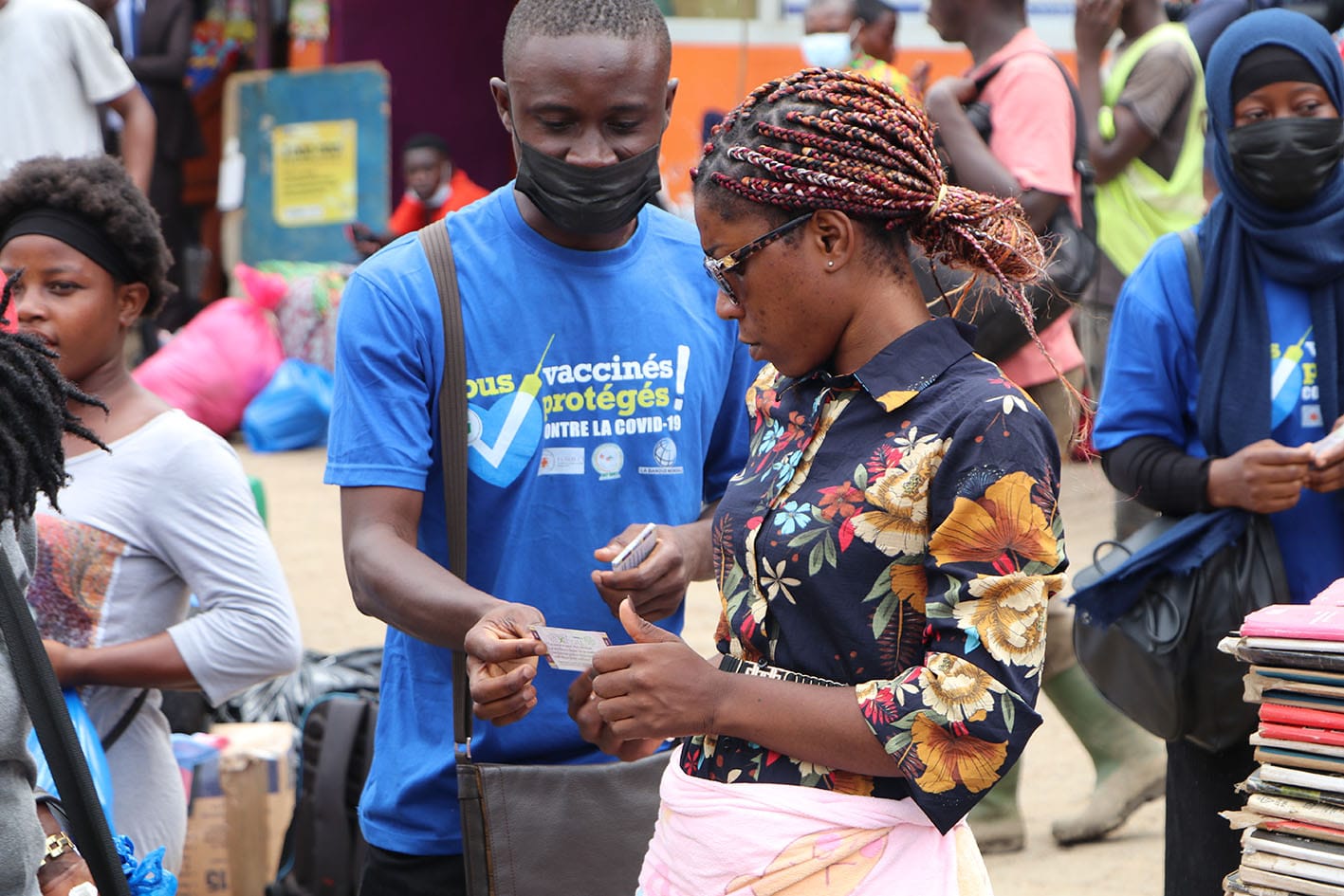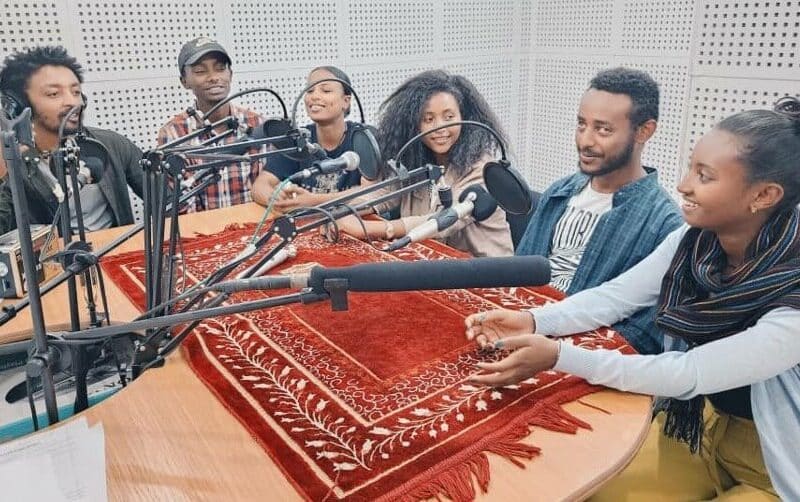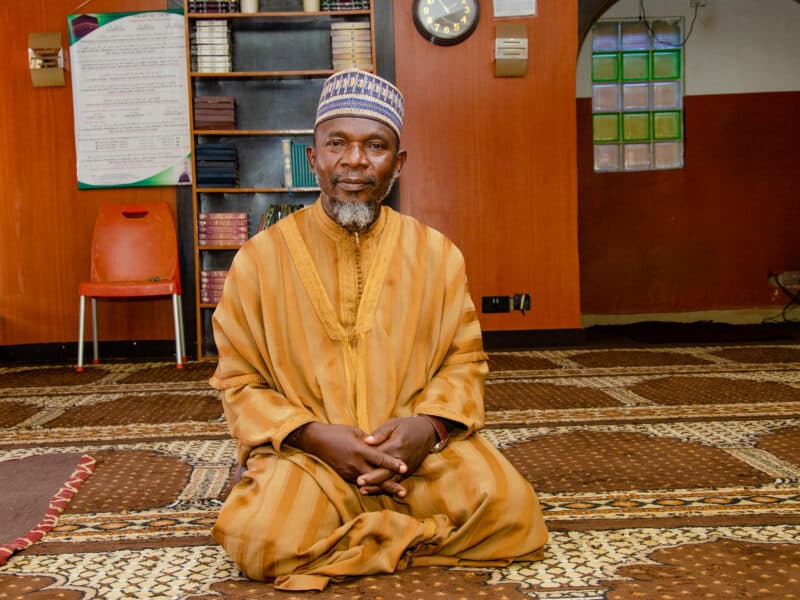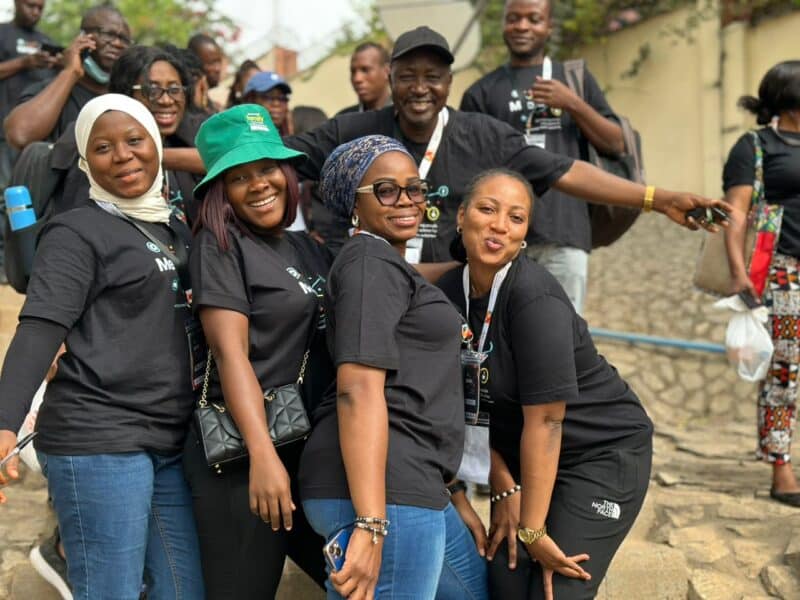Lots of people in Côte d’Ivoire travel before and after the Easter holiday, heading to the country’s interior from the capital to spend time with family and attend cultural festivals marking the occasion. And COVID-19 wasn’t going to hold them back.
Understanding that many wouldn’t be deterred by surging COVID cases, the Johns Hopkins Center for Communication Programs’ Breakthrough ACTION project decided to take advantage of the crowds as an opportunity to educate travelers about the benefits of COVID-19 vaccines – and even to provide free vaccinations at bus terminals and festivals for those interested.
“We saw travel as a good environment for reaching people who might be on the fence about vaccination,” says CCP’s Jorie Nana, a program officer on the project. “People are going back to the things they were doing before the pandemic – if they ever stopped – so we are meeting them where they are.”
Where they are is in bus stations and on buses heading inland during the holidays. The Breakthrough ACTION team created a slogan: This year, Paquinou is also “Vaxinou!” Paquinou is a localized Ivorian term for “Pâques,” the French term for Easter. Vaxinou is actually a word created by CCP’s Côte d’Ivoire team that rhymes with Paquinou and clearly evokes the idea of vaccination.
They created messages to be played on the television sets inside buses between other entertainment, working with bus operators to ensure the technology was working. They had kiosks inside six bus stations where people could get their shots on the spot and also at the cultural festivals they were attending, where teams of mobilizers were deployed to attract travelers’ attention to the vaccination services available. They printed 20,000 vaccine invitation cards for mobilizers to distribute at transit and festival sites.
“I came to get vaccinated before leaving for Paquinou,” said Assita Konate, a bus passenger. “I’d ask others who are not already vaccinated to go and get vaccinated.”
It wasn’t only the passengers who were convinced. Many employees and managers of the bus companies also got vaccinated for the first time during the campaign.
“I have been wanting to get vaccinated for some time now. I don’t know what was stopping me,” said Cheick Pape, who oversees the Adjame bus station in Abidjan. “So today, since you are here, I am taking the opportunity to get vaccinated. I think that as a station manager, I should also set an example for the other employees.”
In Côte d’Ivoire, according to the New York Times’ Vaccine Tracker, more than 12 million doses of COVID vaccine have been administered, with 21 percent of Ivorians fully vaccinated and 31 percent with at least one dose
In the 10 days of the campaign, an estimated 81,600 people were exposed to the messages and 1,600 were vaccinated in these locations, hundreds more than anticipated. Nana says they will take lessons from this campaign and apply it to other busy travel occasions of the year, such as back-to-school and the end of the year holiday – initiating outreach efforts even earlier to encourage vaccination in advance of travel. She says other countries could adapt the program for their big travel holidays.
“This approach is promising and can be replicated for other high-traffic or festive periods in Cote d’Ivoire,” Nana says. “People who are traveling are kind of a captive audience, waiting for their bus or on public transportation for three to seven hours.
“This is a chance to get people who might not even think about vaccination to get vaccinated before hitting the road.”





